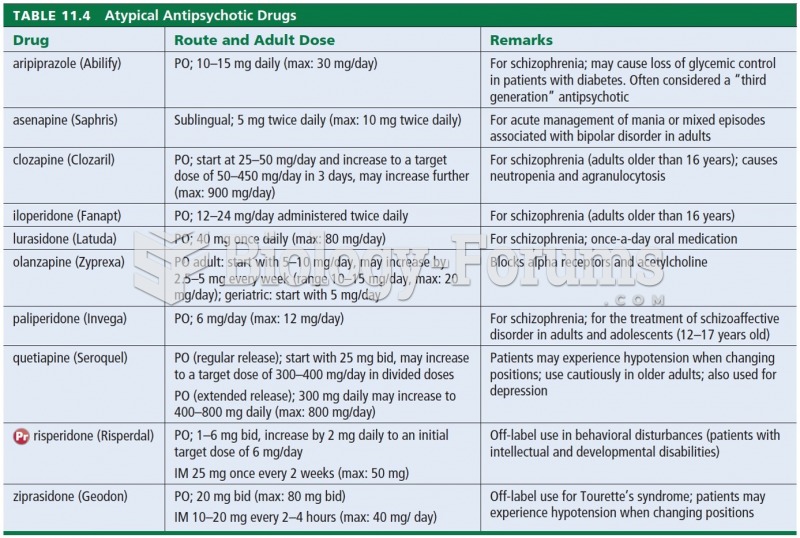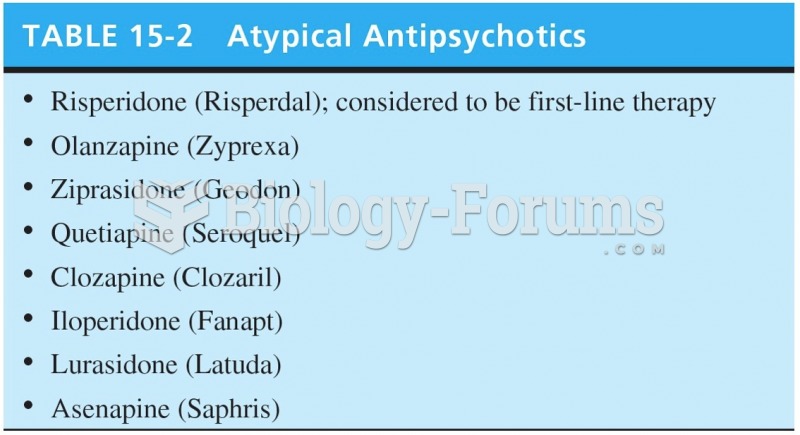|
|
|
The FDA recognizes 118 routes of administration.
Vampire bats have a natural anticoagulant in their saliva that permits continuous bleeding after they painlessly open a wound with their incisors. This capillary blood does not cause any significant blood loss to their victims.
Once thought to have neurofibromatosis, Joseph Merrick (also known as "the elephant man") is now, in retrospect, thought by clinical experts to have had Proteus syndrome. This endocrine disease causes continued and abnormal growth of the bones, muscles, skin, and so on and can become completely debilitating with severe deformities occurring anywhere on the body.
Illicit drug use costs the United States approximately $181 billion every year.
Aspirin is the most widely used drug in the world. It has even been recognized as such by the Guinness Book of World Records.
 Dental topography differs between A. Afarensis and H. erectus, suggesting the australopithecine teet
Dental topography differs between A. Afarensis and H. erectus, suggesting the australopithecine teet
 A Dorsal view of a scan of the hand phalange of a child from Denisova that yielded mtDNA that differ
A Dorsal view of a scan of the hand phalange of a child from Denisova that yielded mtDNA that differ




